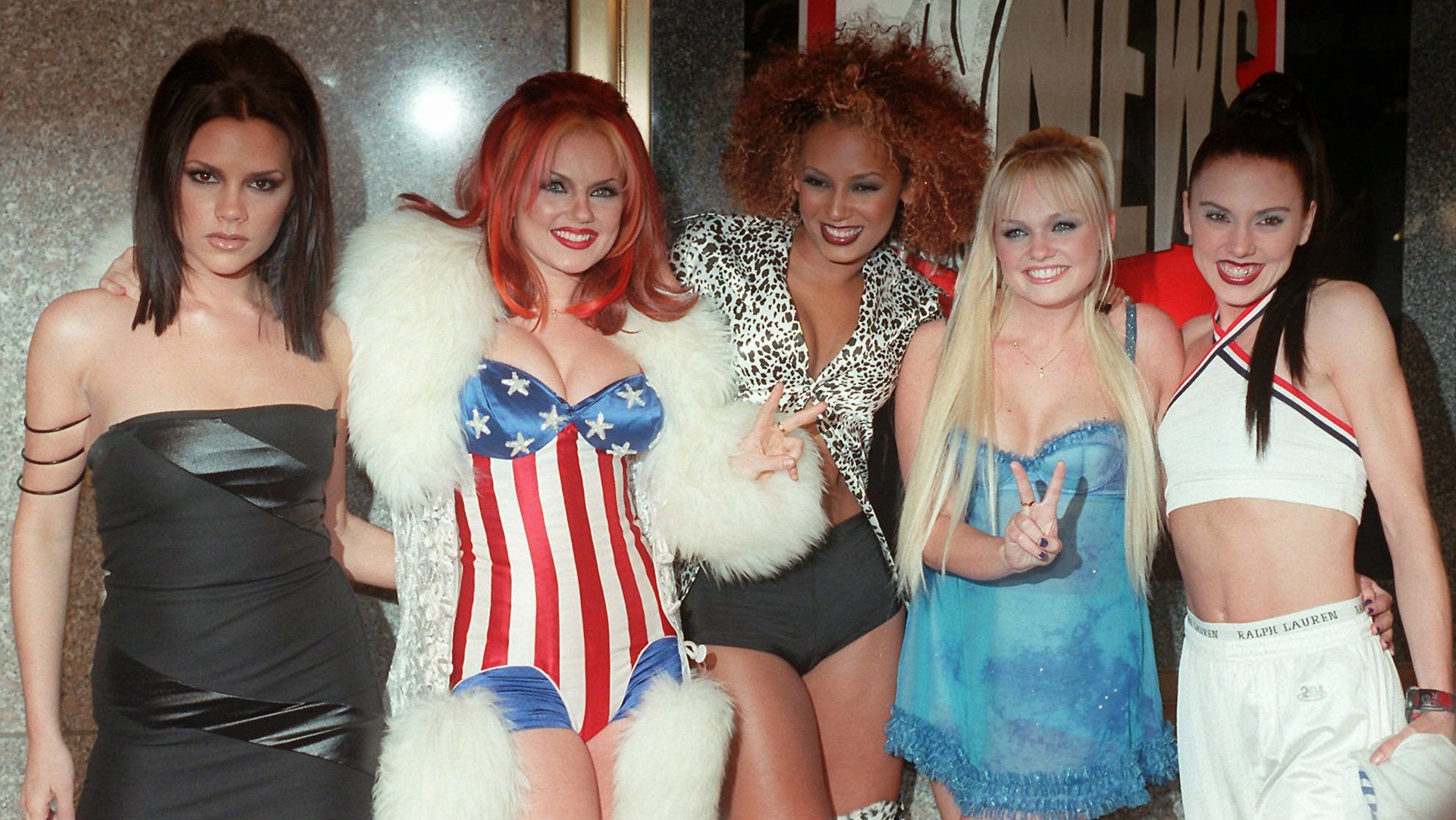Why it’s still a Spice World in 2018
The Spice Girls’ social media accounts posted a video today (Nov. 5) that featured four of the group’s five members arguing over Ginger Spice’s outfit, before breaking out into an a cappella version of of “Spice Up Your Life,” and announcing some long-awaited news: there will be a Spice Girls reunion tour.


The Spice Girls’ social media accounts posted a video today (Nov. 5) that featured four of the group’s five members arguing over Ginger Spice’s outfit, before breaking out into an a cappella version of of “Spice Up Your Life,” and announcing some long-awaited news: there will be a Spice Girls reunion tour.
Victoria Beckham will be absent from the 2019 UK-only tour to focus on her fashion label, The Guardian reports, but even though Posh Spice will be missed, the concert tour will almost certainly still be a hit. The Spice Girls have thrived as a quartet before: Geri Horner left the group in 1998 and the other members performed without her until they announced a hiatus in 2000. And since it’s been over a decade since any of them have toured together, fans seem ready for any sort of concert.
After all, their 1996 debut album Spice is still the biggest-selling album from a girl group in history, and the band massively impacted the formative years of a certain generation. The album’s hit single “Wannabe” went on to become an anthem for girl power. A 2014 study found it to be the most recognizable song of all time, and it’s been streamed for the equivalent of 1,000 years on Spotify.
The Spice Girls’s selling power
The Spice Girls haven’t been around for as long as groups like the Rolling Stones or the Eagles, formed in the 1960s and 1970s respectively, that earned nearly $100 million each on tour in 2018. But they have a similarly large and loyal fan base. According to data reported to Billboard Boxscore, their last reunion tour—“Return of the Spice Girls,” which featured all five members—was one of the top 10 highest-grossing tours of 2008.
In fact, the Spice Girl’s concert earnings in 2008 would also put them in the top 10 for 2018, judging by the list of the highest-grossing worldwide tours this year published by Pollstar, a concert-industry trade publication. Adjusted for inflation to match Sept. 2018 numbers, the Spice Girls earned $81.6 million for their last reunion tour, which would place them between Kenny Chesney and Justin Timberlake, who have earned $62.1 million and $83.8 million respectively from touring this year so far. (Timberlake ranks at number seven, and Chesney at number eight, on Pollstar’s list.)
Tickets for the Spice Girls’ 2007-2008 run reportedly sold out in less than a minute, according to the BBC. Their core fans, who were in their teens in the mid-to-late 1990s, and in their 20s in the late 2000s, are in their 30s now, which means they will likely have the purchasing power to buy reunion-tour tickets—and will probably be willing to shell out the money, even without Posh Spice. (Ticket prices have yet to be announced; they will go on sale Saturday Nov. 10 at 10:30am GMT on Ticketmaster.)
Spice Girls and the nostalgia economy
From the video game industry to the movie industry, nostalgia sells. Research has found that the music that we listen to at age 14 resonates the most, and for many of those who grew up in the 1990s, the Spice Girls are high on the list.
But because the 1990s are on trend, younger millennials will likely be snapping up tickets too.
When the Spice Girls got together for their 2008 reunion, the group already wielded nostalgic power. As the New York Times put it at the time,“the Spice Girls didn’t just bring nostalgia for the prosperous 1990s. It was nostalgia squared, since their hits were already predigested pop.” (The Times noted how the group took influences from Madonna, Michael Jackson, and even Motown music.) This has likely intensified in the 10 years since, for both a younger market and those that have long followed the group.
Earlier this year, an exhibition dedicated to Spice Girls’ fashion at the Business Design Centre in London showed that buzz around the biggest girl group in UK history may never die down.
Spice World in the age of #MeToo
The Spice Girls’ brand of girl power may be especially resonant in 2018, as the world continues to reckon with the #MeToo movement. The Spice Girls never cared much for decorum in interviews and were open about sexuality. In addition, the group’s biggest single “Wannabe” exalted female friendship over romance, and promoted women supporting women—sentiments which have found renewed importance in the age of #MeToo.
Horner once told The Guardian that Spice World is “a community in which each one of us shines individually, without making any of the others feel insecure. We liberate each other.” Spice World is a film about the group from 1997 and Spiceworld is the name of the group’s second album from that same year, but as Horner makes clear, it’s also meant to refer more broadly to a metaphysical place where women are truly free. As Vulture points out, “The plot of Spice World, weakly Scotch-taped together as it may be, finds the band repeatedly trying to escape from men’s schemes that range from opportunist to downright evil.” Spice World, as described by its female founders, is something many people would still buy into today.